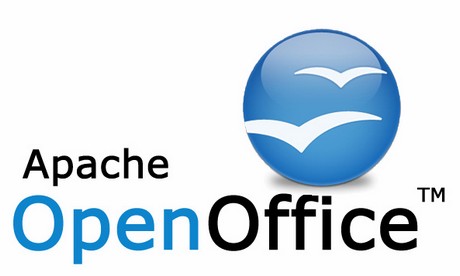 Patrick Henningsen
Patrick Henningsen
21st Century Wire
If you haven’t gotten on the ‘open source’ bandwagon yet, it’s never too late to experience this little patch of enlightenment.
Generally, when it comes to I.T., I am a respectable novice and know just about enough to get by. This also means that I sometimes pay for things that my techie mates say I shouldn’t. After recently updating my computer system, I was in desperate need of a spreadsheet and database program. Now, with software, it’s been pretty much like with my toothpaste, or barber; I tend to stick with what I know, and never change, pretty much forever. Same with phones – I still use a Nokia banana from 2008 with a digital crystal interface and a dual SIM card. Why? Maybe because I only need to charge it once a week, and can’t be bothered to change anyway. Maybe it’s because I’m still in my flow with the Nokia (I still think it’s cool).
Alas, I had resigned myself to buying a 2007, or 2010 copy of Microsoft Office, and parting with anywhere between $87 and $120 USD, and possibly double that for a second ‘license’ I might need later on for a second desktop workstation.
The thought of giving Bill Gates my last hundred (or two hundred) bucks was thoroughly depressing. Is that all there is in life – to be milked from cradle to grave by one monolithic corporation who simply could afford more lawyers than any other legal challengers in anti-trust court. What can you do?
I had heard of OpenOffice before, but for some strange reason (which could very well have been a subliminal meme implanted by Gates himself) I thought that ‘Open Office’ was a Microsoft product. So when I went to shop on Microsoft’s website, I noticed that all new versions of Microsoft Office cannot (as far as I could see) be purchased directly from Gates and Co, but rather “rented” for month to month, or yearly. Unbelievable – the new rentier’s economy from Seattle’s digital slum lords. Great. You’d think the software kings had already made enough billions, gouging customers for something with costs them nothing to mass-produce (copying code) – that they would have to rent you something which yesterday you could buy outright? I guess you could make the argument that you are not actually paying for the software, but for some ridiculous team-building weekend or corporate yoga retreat, and first and foremost, monopolist Microsoft’s mega pension pot – every past, present and future employee – along with Bill’s yacht, a lot of bad art, some one’s ski lodge a Davos, and probably for some exotic vaccines (heaven forbid) somewhere in the Indian subcontinent. Sounds like a deal, right?
 So basically, I can replace MSWord, Excel, Access, and Powerpoint, along with some extra programs which may or may not come in handy – like OpenOffice’s graphics package ‘Draw’, and a fairly brainy, but cool piece of kit called ‘Math’. Pretty much the same interface as MS, in fact, it’s very much like Office 2003 – which was my favorite MS interface, but of course, the brain trust at Microsoft ditched it because software programmers were bored and made a new Frankenstein to keep their jobs, or who knows. OpenOffice has a few extra features too, and has no ridiculous jobsworth Microsoft updates (I’ll buy that for a dollar).
So basically, I can replace MSWord, Excel, Access, and Powerpoint, along with some extra programs which may or may not come in handy – like OpenOffice’s graphics package ‘Draw’, and a fairly brainy, but cool piece of kit called ‘Math’. Pretty much the same interface as MS, in fact, it’s very much like Office 2003 – which was my favorite MS interface, but of course, the brain trust at Microsoft ditched it because software programmers were bored and made a new Frankenstein to keep their jobs, or who knows. OpenOffice has a few extra features too, and has no ridiculous jobsworth Microsoft updates (I’ll buy that for a dollar).
OpenOffice is totally FREE, no strings attached – just download and start using it. The other big word here is that it’s ubiquitous. The open source software framework is fairly seemless with Microsoft Office, almost interchangeable – you can email files to others to edit, save and send back – as normal. If you are sending off files to friends who still use MS, then no fear, OpenOffice can also save files in MS office ‘.doc’ format, with Mac, or PC. Tech Soup breaks it down, “Open-source tends to use open standards. OpenOffice’s native files, called OpenDocument, adhere to publicly agreed-upon, readily available standards. While OpenOffice can also read and write Microsoft files like Word’s .doc and Excel’s .xls, these are not its default file types). Thus, any other software that supports these standards can read and write OpenOffice documents. Popular open standards, like HTML, HTTP, and URL, tend to take on a life of their own; closed standards risk going the way of the Betamax“.
Another interesting feature about open source solutions like OpenOffice is that they are not tied to the destiny of the company who created the program: “Open-source has code beyond a company. Because its source code is available to all, OpenOffice is not solely dependent on its current crop of developers and current corporate sponsor. If all these people were to disappear, the code would still exist and other people could pick of the project. The same is not always true for closed-source, commercial projects. That being said, it doesn’t appear that Microsoft is in any danger of going bankrupt in the foreseeable future.”
Open Office open source software bundle is run by Apache systems, but who are they? Apache products actually power half the Internet. According to their blog, they also do the following: “manage exabytes of data, execute teraflops of operations, store billions of objects in virtually every industry, and enhance the lives of countless users and developers worldwide. Apache projects power mission-critical applications in financial services, aerospace, publishing, big data, Cloud computing, mobile, government, healthcare, research, infrastructure, development frameworks, foundational libraries, and many other categories. Beginning with the Apache HTTP Server —the world’s most popular Web server— Apache software has been at the forefront of dozens of today’s industry-defining technologies and tools, playing an integral role in nearly every end-user computing device, from laptops to tablets to mobile phones. Apache software is so ubiquitous that 50% of the top 10 downloaded Open Source products are Apache projects.”
In other words – they form the real back bone of the internet and the user world internationally. How can they afford to give it away for free? Apache is funded by donations, sponsors and most of free manpower – run by an all-volunteer community comprising 505 individual Members and 4,081 Apache ‘Committers’.
What did I do with the $120 – $240 I saved with OpenOffice? I bought a reconditioned, customized mountain bike (used):

.
I’m expecting some carbon credits from Al Gore, thank you very much, and if he can please pay me in Bitcoin.
READ MORE SCI-TECH NEWS AT: 21st Century Wire Sci-Tech Files
SUPPORT 21WIRE – SUBSCRIBE & BECOME A MEMBER @ 21WIRE.TV
















